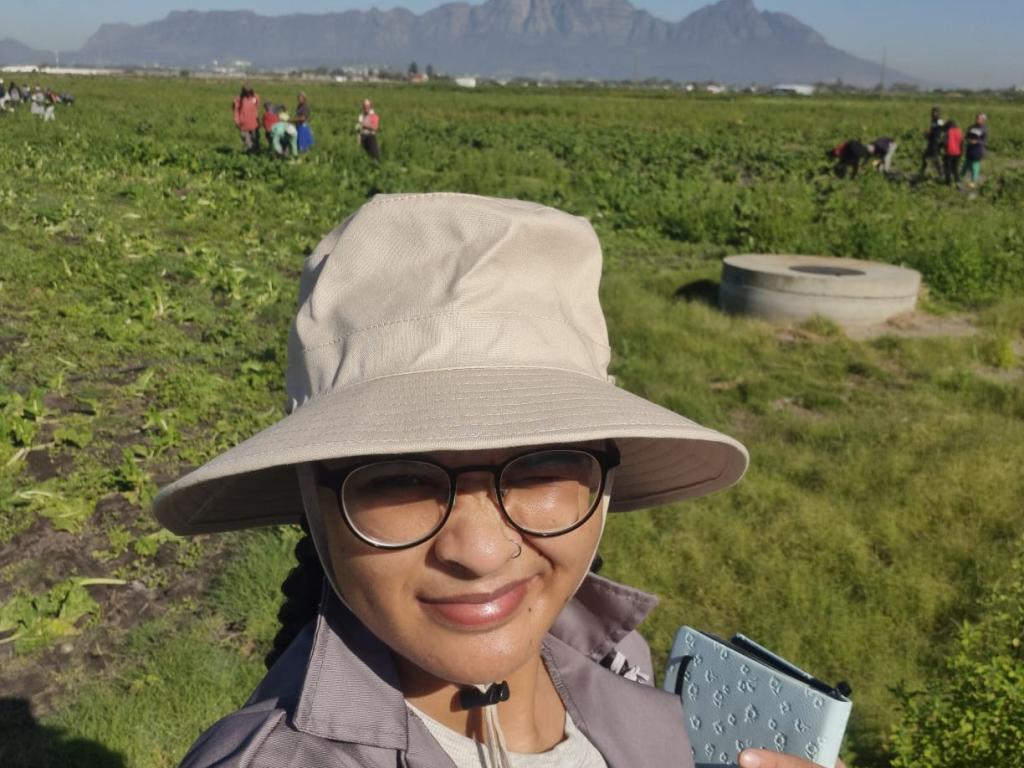Researching sandmining in the PHA: Zaakiyah Rabbaney

In the beginning of February 2025, I began my fieldwork on Springfield Fresh farm in the Phillipi Horticultural Area (PHA). Springfield Fresh is located on the 55 hectares owned by Consol Glass. The company is currently leasing the farm from Consol until operations begin – should they be granted an Integrated Water Use License (IWULA).
Prior to this, I was mainly doing interviews with community members to understand the socio-economic conditions in the wider Phillipi and Schaapkraal area within which the PHA is located. This helped in situating my intentions, questions, methods, and participation when going to the field. My method of fieldwork on the farm is two-fold: (1) take on the role of a farm labourer to understand the work, knowledge, and time that goes into working the land, and (2) learning about the lives of the labourers and farm leasers, as well as observing the social dynamics between them.
Since I have only just begun visiting the farm and interacting and learning, this method is in the early process of playing out. It is not easy to enter a workplace where everyone has their role, and your presence is unknown and strange. Because of this, the first two weeks, and where I am now and will continue to be for a month or so, is about integrating myself within the work environment so the labourers and possible participants acclimate to my presence. This involves harvesting the crops, packing the veg, and cleaning the area. This is hard work and even though I was aware of how arduous farm labour is, I was shocked by how difficult I found it for just a few hours – being hunched over under the hot summer sun, finding the best quality crop to pull from the ground and standing in a hot shed, packing veg while sitting on a crate, or standing upright is not for the weak. The farm leaser, Phillip, tells me that, “farm work is hard work, it’s no joke,” and everyone must become farm fit to do the work effectively and efficiently.
The labourers’ day is divided into two parts: harvesting in the morning from 7am to 1pm and preparing, cleaning, and packing the veg, from 2pm-6pm (lunch is 1 hour). I have only been able to handle one part of the day before I am too exhausted to continue or have a headache from the sun. Removing myself from the workplace comes with shame – everyone stays here from 7am to 6pm, and I can only handle it for 5-6 hours. I also recognise my privilege in these moments. I can leave, have something cool to drink, and go home, whereas the labourers don’t have this option. Through this time in the field, I am motivated to become farm fit and work through the entire day to truly experience what it means to work on a crop farm!
Zaakiyah Rabbaney is a PhD student in the Critical Zones Africa project, funded by Science for Africa Foundation (SFA)
